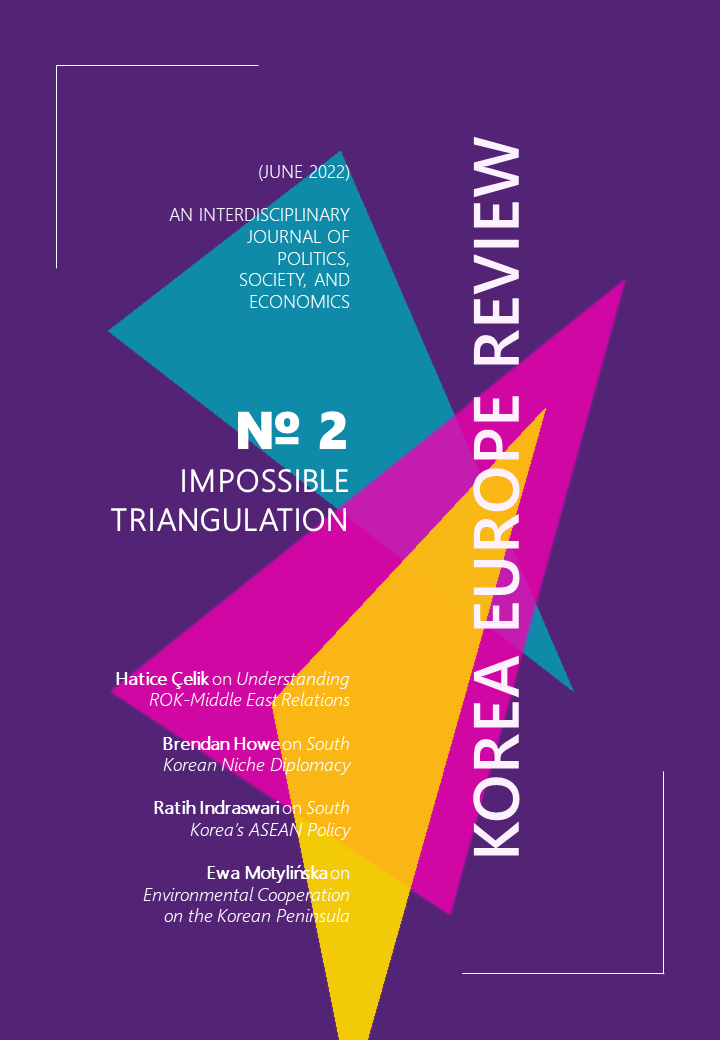Environmental Cooperation on the Korean Peninsula – A Conflict Transformation Feasibility Study
DOI:
https://doi.org/10.48770/ker.2022.no2.10Keywords:
conflict transformation, environmental cooperation, engagement, Korean PeninsulaAbstract
Despite years of diplomatic efforts – most recently the hope related to the détente starting with the Pyeongchang Winter Olympics in 2018 followed by several inter-Korean and North Korean–US summits, the political situation on the Korean Peninsula looks bleak again in early 2022. This study explores non-traditional approaches toward transforming the 70-years of conflict on the Korean Peninsula. It focuses on the question whether environmental cooperation could be an instrument for the transformation of the conflict between North and South
Korea. Through eclectically combined methodological approaches and extensive secondary data research, this article examines whether in less politically laden fields engagement with and in North Korea can be both possible and meaningful, and whether policy exchange in these areas can flourish under otherwise difficult political circumstances. It also explores the significance of non-material incentives and their importance for exchanges with North Korea and international engagement. I conclude that small-scale collaboration projects under multilateral arrangements could be more effective in conflict transformation processes than top-down political initiatives.
References

Downloads
Published
Issue
Section
License
Copyright (c) 2022 Ewa Motylińska

This work is licensed under a Creative Commons Attribution 4.0 International License.


